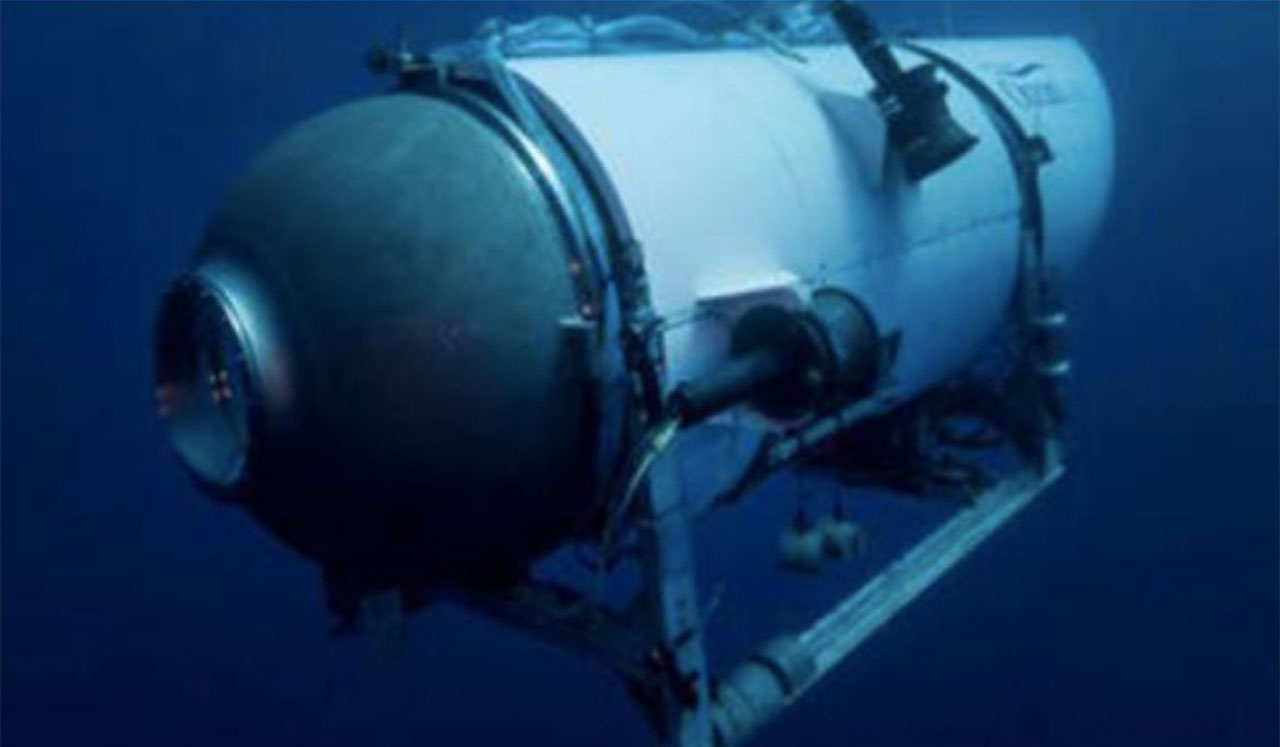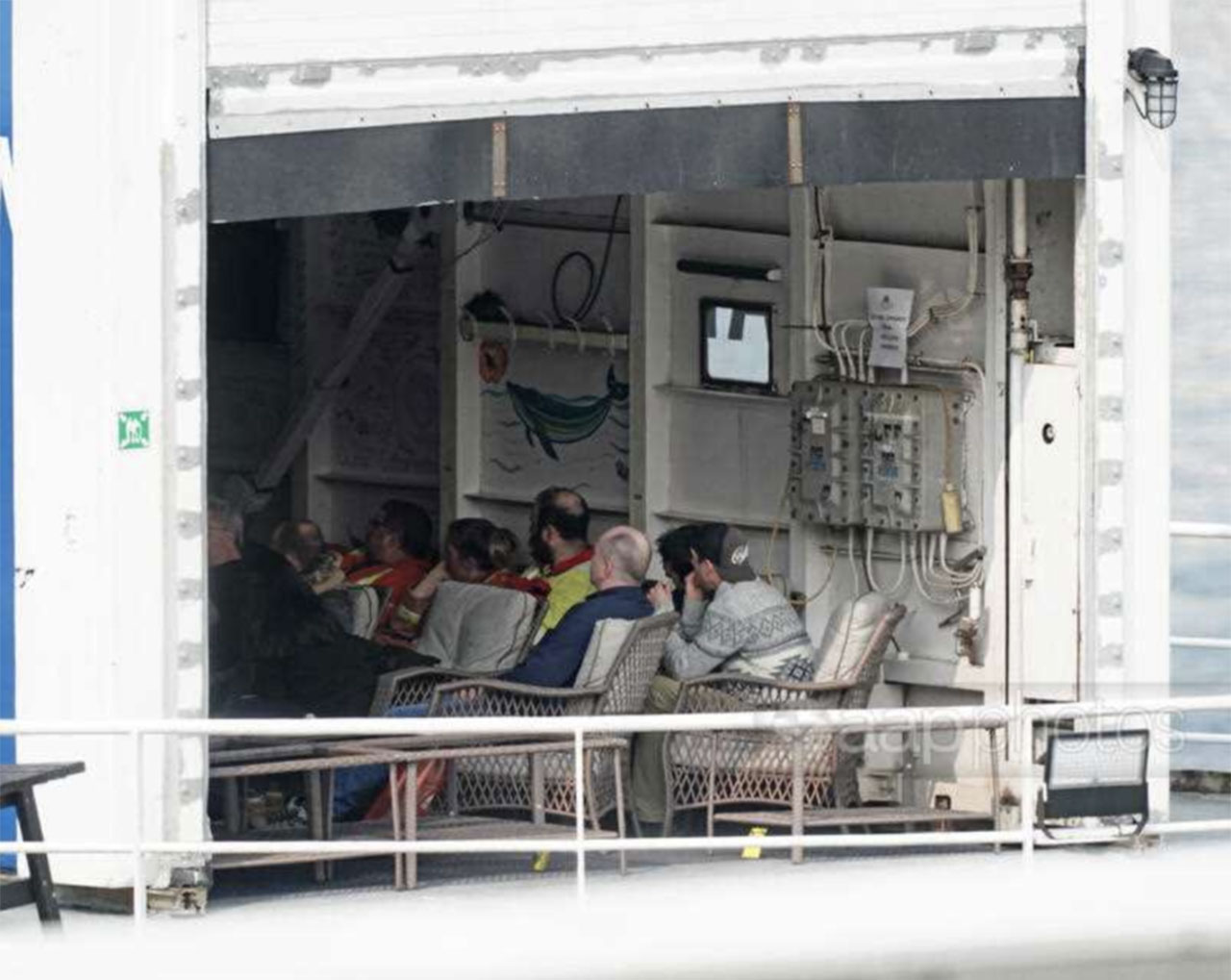
Photo: OceanGate Expeditions submersible vessel named Titan was used to visit the wreckage site of the Titanic. (OceanGate Expeditions via AP)
The spirit of adventure comes with moral risks
The deep-ocean deaths of five people in the OceanGate submersible prompt RALPH GENENDE to consider the draw and danger of adventure.
Last Friday we woke to grim news. Five people aboard a missing submersible died in a catastrophic event, bringing a sorrowful end to the massive search for the vessel that was lost during its voyage to the remains of the Titanic.
The search for the submersible gripped the attention of the world, which paused and acknowledged the words of the OceanGate Expeditions spokesperson: “Our hearts are with these five souls and every member of their families during this tragic time”. It reminded many of the 2018 Thai cave drama. People trapped in the dark, fresh air and food running out, dreadful fear, and the impending horror of death far from loved ones. Sadly, there was no dramatic rescue this time; just shattered pieces of wreckage close to the century-old remains of the Titanic; the broken hearts of their families, and our own diminishment at the loss of fellow lives.
In a world of war, violence,and frequent mass losses (like another recent ocean tragedy near Greece) we can still pause and acknowledge that every human being counts; that in the words of the Talmud: “Whoever saves one life, saves the world entire” (Sanhedrin 37a).
The OceanGate statement added: “These men were true explorers who shared a distinct spirit of adventure, and a deep passion for exploring and protecting the world’s oceans”. These intrepid individuals reminded us that the human psyche hungers for the excitement of the new, the allure of the undiscovered.

Crew onboard The Polar Prince, the main support ship for the Titan submersible (Photo: Jordan Pettitt/PA Wire)
Rabbi Soloveitchik, the great teacher of the 20th century, speaks of the cosmic spirit of human beings – how we love to travel, seek, explore and search the uncharted lanes of the universe. He illustrates this with the whimsical rabbinic comment that God created the first human beings from cosmic dust or earth gathered from all corners of the galaxy, “God formed the human out of the soil …” (Genesis 2:7).
Soloveitchik does, however, add another interpretation. That humanity was formed from clods of earth, gathered from one spot only – the sacred place in Jerusalem where the Temple would later be built.
This interpretation suggests the very opposite of cosmic yearning. It’s about being rooted in one space; it’s about the need for a secure spot in an insecure and uncertain world. It’s also a warning against hubris, recognising how small we are in this universe and therefore not getting too “up ourselves”.
JEWISH LAW RECOMMENDS THAT WHILE WE CAN ENGAGE IN DANGEROUS BEHAVIOUR, IT IS FOR THE ADVANCEMENT OF HUMAN LIFE AND THE RISK SHOULD NOT EXCEED THE DANGER.
There’s a lovely teaching of Rabbi Simcha Bunim, a great Polish Hasidic master at the turn of the 19th century. He is credited with saying the following: "Everyone must have two pockets, with a note in each pocket, so that he or she can reach into one or the other, depending on the need. When feeling lowly and depressed, discouraged or disconsolate, one should reach into the right pocket and there find the words: Bishvili nivra ha-olam, ‘The world was created for me’ (BT Sanhedrin 37B). But when feeling high and mighty one should reach into the left pocket and there find the words: V’anochi afar v’efer, ‘I am but dust and ashes’ (Gen. 18:27).
Perhaps there’s a lesson here about being too reliant on our technological prowess. The Titanic was said to be unsinkable because of its size and technological advancement. It had eight watertight compartments on the vessel’s hull that would close if water entered them, allowing the ship to stay afloat. Similar claims were made about the exceptional safety features of the submersible, although reports are now emerging that experts had questioned these.
Arthur Loibl, a retired businessman and adventurer from Germany, who went on a voyage to the Titanic site in 2021 said that while he was able to get a view of the ocean liner, in hindsight he felt “a bit dubious” about how the dive was carried out. "I was a bit naive, looking back now,” he said, “it was a kamikaze operation.”
This, of course raises the ethical issue of how we measure the advantages of risk-taking against the possible harm or loss to human life.
Jewish law recommends that while we can engage in dangerous behaviour, it is for the advancement of human life and the risk should not exceed th danger. There are other moral issues that should not minimised, such as the fact that this undersea adventure was only open to the extremely wealthy and whether the huge costs of the rescue mission were justifiable.
OceanGate’s statement that this trip was about a passion for protecting the ocean is puzzling and dubious and begs the question about respecting the watery graveside of the many victims of the Titanic. The eerie similarities (unheeded warnings, exotic tourism) and juxtaposition of the remains of two vessels may be a voice of warning from the deep unforgiving seabed itself.
Notwithstanding this, the human hunger for adventure and advancement should not be dismissed but paradoxically be managed with care, caution and thoughtfulness.
Following the Challenger Shuttle disaster in 1986, president Ronald Reagan quoted the famous poem High Flight about those who seek adventure and go where angels fear to tread. It captures the same spirit of those who set off in the Titanic submersible and hopefully experienced some of the elation of discovery before their untimely deaths.
High Flight by John G. Magee Jr.
Oh, I have slipped the surly bonds of earth,
And danced the skies on laughter-silvered wings;
Sunward I’ve climbed and joined the tumbling mirth of sun-split clouds –
and done a hundred things You have not dreamed of –
wheeled and soared and swung high in the sunlit silence.
Hovering there I’ve chased the shouting wind along
and flung my eager craft through footless halls of air.
“Up, up the long delirious burning blue
I’ve topped the wind-swept heights with easy grace,
where never lark, or even eagle, flew;
and, while with silent, lifting mind I’ve trod
the high untrespassed sanctity of space,
put out my hand and touched the face of God.
This article was first printed in PLUS 61J MEDIA.